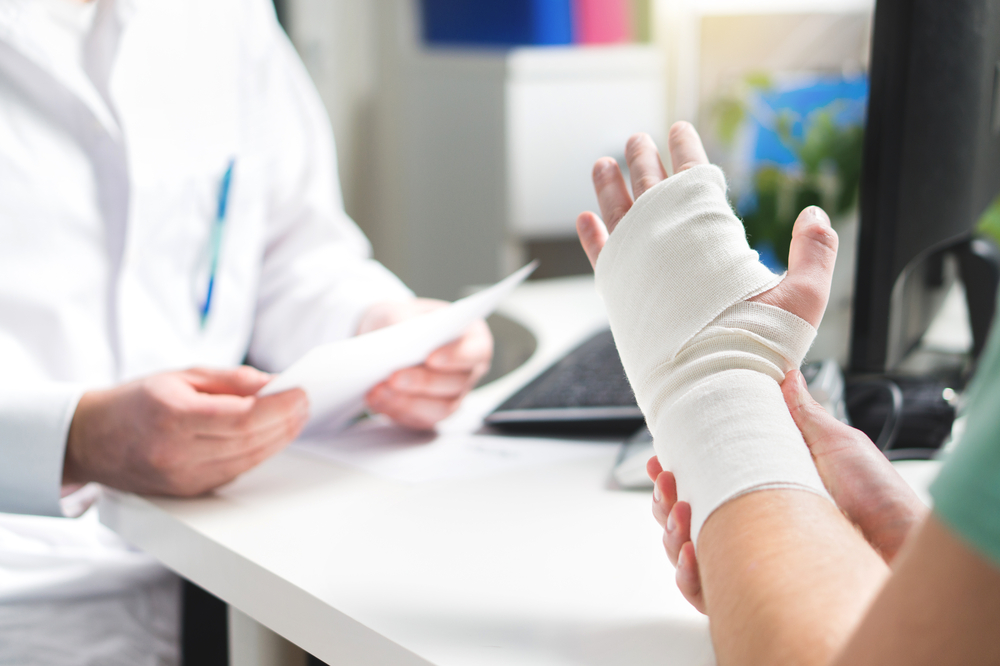If another person injured you, causing financial and emotional losses, you might logically conclude that they should pay for all your damages. There are some situations, though, where a personal injury victim in New Jersey might not recover what they deserve.
Unlike some states, New Jersey limits the amount of certain types of damages that injury victims can recover. Fortunately, these situations are rare, so damage caps do not come up in most personal injury settlements. New Jersey only caps non-economic damages against government defendants and “punitive” damages against any defendant. The latter is meant to punish defendants for reckless and wanton behavior, but the most you can recover in any award for punitive damages is $350,000. If your lawsuit against the government involves serious injuries, no cap should be placed on your pain and suffering.
Call Agrapidis & Maroules, P.C. at (201) 777-1111 for your free case review with our New Jersey personal injury lawyers today.
Does New Jersey Limit the Amount of Compensation that Can Be Recovered in a Personal Injury Settlement?
Personal injuries are often like a timestamp on people’s lives, marking the starting point of a significantly challenging period in them. Every bill, appointment, and missed day at work that stems from the incident should be accounted for in a personal injury settlement. Unfortunately, that is not always the case since New Jersey law “caps” or limits certain types of compensation.
While the goal is to maximize your compensation in a settlement, our personal injury attorneys in New Jersey can identify potential caps that might impact it. Mose injury damages are “compensatory, which includes “special” (financial) and “general” (pain and suffering) damages, but the law only limits general losses and only in certain situations. Punitive damages might also be warranted in a settlement if the defendant acted outrageously or criminally, but NJ law also caps these to a certain amount. The following will explain how damages can be capped in an injury lawsuit:
Financial Damages
“Special damages” is New Jersey’s statutory term for your economic losses. Although the law does not cap your economic damages, that does not mean that they are unlimited. Your financial damages will be limited to what monetary expenses you can prove resulted from the accident. If you can prove it cost you financially, you are entitled to recover it in your settlement.
Medical expenses are the most common economic damages. Suppose all your medical bills and lost wages totaled $50,000, and you have the necessary records and invoices to prove it. Your settlement should account for every dollar. Most insurance companies will not fight when these damages are thoroughly documented, especially when our team negotiates the settlement.
Damages for personal property should also be included in your settlement. However, any damaged property will typically be capped at its market value at the time of the accident rather than the sentimental value you assign it. For example, a damaged watch that was a family heirloom might be an incredible loss, but if it is only worth $300, you can only claim $300.
Pain and Suffering
Some states cap pain and suffering in all personal injury claims. Fortunately, N.J.S.A. § 59:9-2(d) only limits pain and suffering damages in cases against a public employee or entity. Victims in these cases cannot recover non-economic losses unless their injuries involve permanent disfigurement, permanent loss of a body function, or dismemberment, and their medical expenses must exceed $3,600.
If you can provide medical records to meet this exception, your pain and suffering damages will only be limited to what the evidence supports. Our team will work with your doctors, counselors, and experts so that the physical and emotional impact of your accident is clear.
Punitive Damages
The punitive damages cap is rarely an issue in personal injury settlements because these damages are reserved for cases involving aggravating circumstances. Unlike the damages above, punitive damages do not compensate victims but penalize defendants for acting with willful and wanton disregard for others and discourage similar conduct.
- 2A:15-5.14(b) will cap punitive damages if they are awarded but are too high. The defendant can either be liable for up to five times the amount of the victim’s compensatory damages or $350,000, whichever number is higher.
This means that plaintiffs might recover more than they expected or less than they deserve. For instance, if your compensatory damages are $200,000, your punitive damages would be worth $1,000,000 if the law did not cap it at $350,000. However, if you only received $10,000 in compensatory losses, but the court wanted the maximum punishment for the defendant, your settlement will be significantly more valuable.
Who Decides How Much a Personal Injury Settlement is Worth in New Jersey?
Ultimately, the evidence in your case will decide its value. In practice, our attorneys and the defendant’s legal counsel will have access to the same evidence after the case’s “discovery” phase to formulate our legal theories and arguments. Some evidence, like medical bills and paystubs, will help prove economic losses. Testimony from you, doctors, family, and friends can help establish your pain and suffering. The more thorough the evidence, the better your chances are of settling your case for what it is truly worth.
How that is eventually decided depends on the phase of litigation your lawsuit is in. If our team is still in ongoing negotiations with the defense, we will likely go back and forth with opposing counsel to arrive at a settlement amount that meets your needs. If negotiations fail and the lawsuit goes to trial, the judge or jury will decide how much in damages to award. If a cap is reached for any compensation awarded, the court will have no choice but to enforce it under the laws above.
Call Our New Jersey Personal Injury Attorneys for Help Determining the Value of Your Claim Today
Contact our Jersey City, NJ personal injury attorneys at Agrapidis & Maroules, P.C. at (201) 777-1111 for a free case review today.

